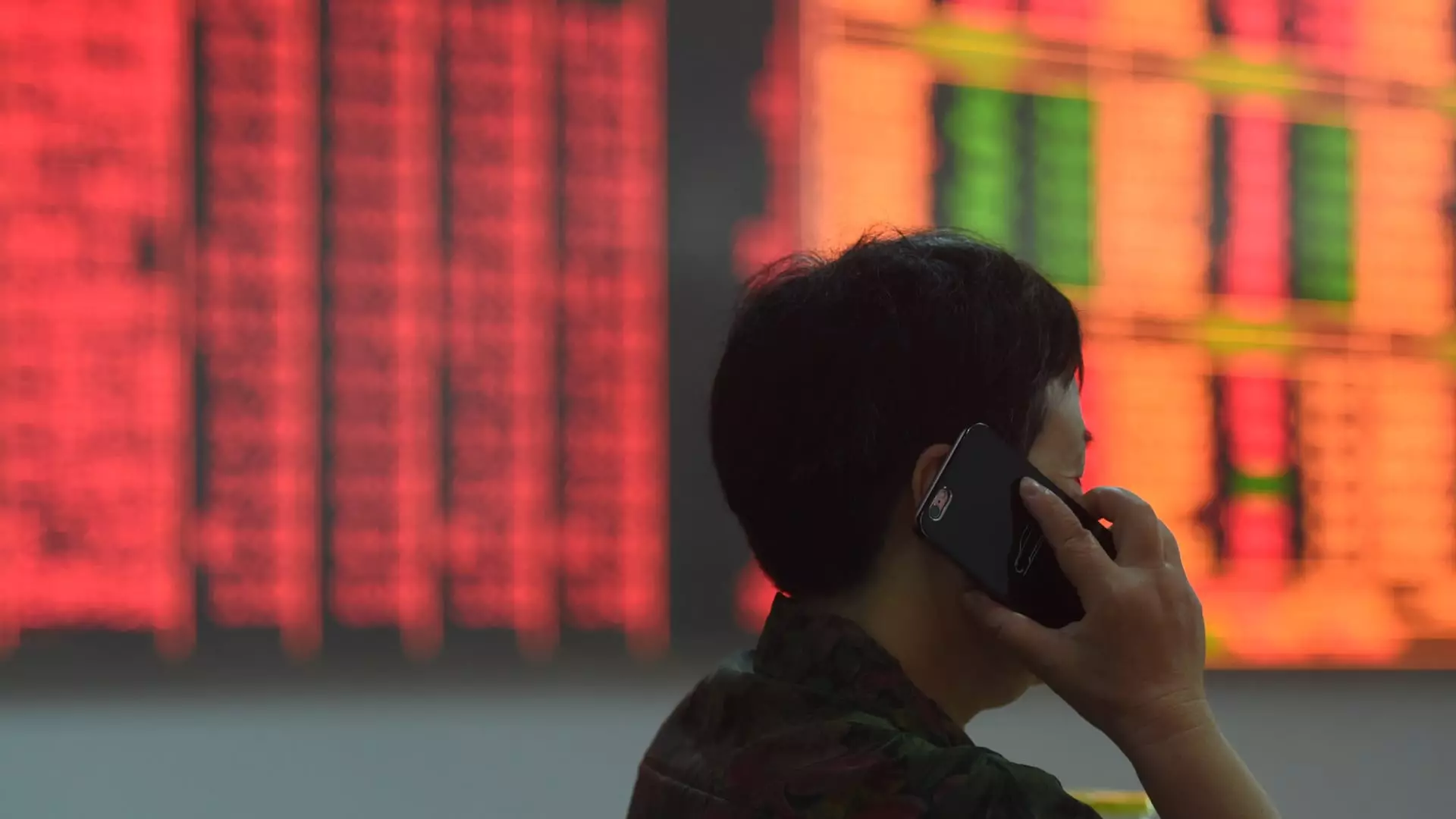China’s economic dynamics have been under intense scrutiny as the nation grapples with significant challenges, notably a stagnating property market and tepid consumer confidence. Despite recent policy announcements that have temporarily buoyed market sentiments, analysts underline the need for deeper, structural reforms rather than just optimistic signals. This article seeks to explore the implications of China’s current economic strategies and their potential effects on long-term economic stability.
On a positive note, the Shanghai Composite Index surged to a three-month peak following a Politburo meeting led by President Xi Jinping. This gathering, which focused on the deteriorating economic situation, aimed to halt the decline in the property sector, a critical pillar of the Chinese economy. State media proclaimed intentions to enhance both fiscal and monetary policies, although the revelations were notably vague. The announcements followed a series of interest rate cuts by the People’s Bank of China, signaling a move to reinvigorate economic activity.
Markets are reacting favorably to these developments, with analysts like Ting Lu from Nomura suggesting that such “shock and awe” tactics could effectively rekindle investor confidence. However, this short-term uplift masks a more complex reality—the Chinese economy is still contending with serious underlying issues that mere sentiment boosts cannot resolve. Growth in the world’s second-largest economy has been persistently sluggish, primarily due to a real estate slump that has lasted four years, significantly slowing retail sales and industrial profits.
The property market’s prolonged contraction poses a significant risk to overall economic growth; Lu estimates that any stimulus introduced might only yield minimal improvements, not exceeding 3% of the nation’s GDP. Analysts have pointed out that the government’s response lacks specificity—a critical element for a meaningful impact. The absence of clear, actionable plans raises concerns about whether the government can effectively stabilize an industry that has become synonymous with economic health in China.
The significant focus on the property sector is not merely about enhancing immediate economic growth but is also essential for restoring consumer confidence. As many Chinese households find themselves in precarious financial positions, the fear of debt curtails consumer spending, which is crucial for driving domestic demand. Experts believe that without restoring faith in the property market, any fiscal policies introduced could have a muted effect on stimulating economic recovery.
Despite positive market movements, consumer sentiment remains hesitant. Even with enticing interest rates and policies aimed at facilitating borrowing, evidence indicates that corporate borrowing fell significantly this September. The China Beige Book’s recent survey, which highlighted declining corporate enthusiasm for loans, underscores the disconnect between policy intention and market reality. This is compounded by the historical context in which the government has implemented regulatory crackdowns in various sectors, leading to a pervasive wariness among consumers and businesses alike.
Market analysts, such as Paul Christopher from Wells Fargo, express skepticism regarding the efficacy of current measures. The lingering psychological scars from shaken consumer confidence require more robust, confidence-instilling policies rather than surface-level adjustments. The Chinese government faces the tall order of stimulating consumer demand while simultaneously navigating a transformation in its economic landscape.
Significantly, recent developments in the U.S. Federal Reserve’s monetary policies have interesting implications for China’s economic strategy. As the Fed adopts a more accommodating approach, it theoretically allows China more latitude to lower domestic rates further. However, even these international dynamics will not solve the pressing need for China to recalibrate its internal economic strategies.
Investor sentiment has recently observed a shift, with global capital flowing into Chinese equities. Noteworthy figures in finance, such as hedge fund founder David Tepper, have expressed renewed interest in Chinese stocks, signifying a belief in potential recovery. Yet, such optimism must be tempered by caution; insights from experts suggest that for lasting financial stability, the Chinese government must not only focus on regaining market confidence but actively nurture a productive and healthy capital market.
While there are indicators of a potential upswing in China’s economic landscape, meaningful recovery requires a comprehensive examination of deep-seated structural issues. Analysts agree that without carefully tailored policies addressing the property market and broader consumer confidence, any temporary boost in market sentiment will be short-lived. The future trajectory of China’s economy hinges not just on fiscal promises but on the commitment to enact thorough and effective reforms that align with long-term growth and stability. The challenge remains daunting, and the path forward will demand both ingenuity and resolve from the Chinese leadership.

